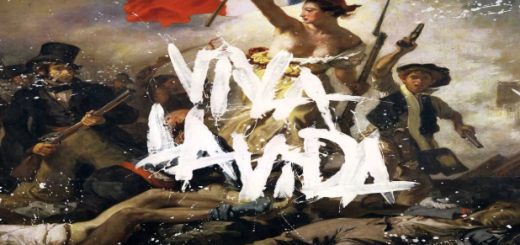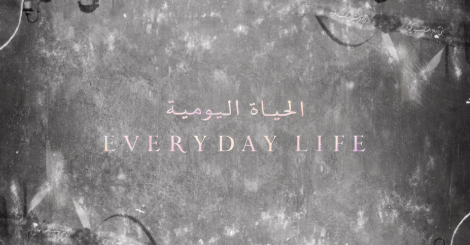Coldplay’s “Arabesque” Lyrics Meaning
As the title implies, this song applies to the people of the Middle East. Or more specifically, Coldplay and their collaborators are relating to such individual from a sympathetic disposition. And the issue they are addressing can be generally termed as Islamophobia. In other words, “Arabesque” features vocalists Chris Martin (UK), Stromae (Belgium) and Femi Kuti (Nigeria). And what they are saying is that “we share the same blood”. And the we would be the entire human race.
Indeed as Chris points out, “I could be you”, and “you could be me”. So in terms of the aforementioned prejudice, basically what the artists are saying is that the challenges individuals face in life are more based on say geography than the individuals themselves. Or another way of looking at it is that if these selfsame singers were born in the Middle East instead of their respective countries, they too would have to deal with issues common to people from that part of the world.
And it should be noted that there are no direct references made to Arabs or the Middle East. But considering the title and the fact that the song (“Orphans“) Coldplay released concurrently is based on a similar theme, such would logically be the explanation of this song.

What really is the meaning of Arabesque?
Arabesque is an art form that comes to us via the traditional Islamic world. Even if you aren’t adept in Islamic art, there’s a good chance you have seen Arabesque since it is also a serves as a popular type of Middle Eastern surface design (i.e. decoration). And the most striking feature of this form of visualization is that it features at bunch of repetitive, overlapping patterns. And the way they intertwine with each other may sometimes appear to be random. Yet these arrangements come together to form exquisite, intricate works of art. And they often feature abstract shapes as opposed to actual images apparently due to religious prohibitions against the latter.
Writing Credits for “Arabesque”
Chris Martin, Stromae and Femi Kuti are credited as the writers of this song along with the following:
- Drew Goddard
- Guy Berryman (Coldplay)
- Jonny Buckland (Coldplay)
- Will Champion (Coldplay)
“Arabesque” was produced by the following producers: D. Green, B. Rahko and R. Simpson.
Release Date
“Arabesque” was released as one of two lead singles (the other being “Orphans”) from Coldplay’s eighth album, “Everyday Life”, on 25 October 2019. The labels behind the project are Parlophone Records in conjunction with Atlantic Records.
Who is Femi Kuti?
Femi Kuti is a famous African musician. He inherited this attribute from his dad, Fela Kuti (1938-1997), who is perhaps the most-celebrated music artist in Nigerian history. In fact “Arabesque” samples an old Fela track entitled “Music Is the Weapon”, which would have likely been released around the same time as the Kuti documentary of the same name in 1982.
Femi himself was born in London. But he was raised in Nigeria and is recognized as such. And like his father (and other family members), Femi is also known as being an influential political activist.
Who Is Stromae?
Stromae is a rapper from Belgium. And concerning his unique look, his mom is indeed Belgium, while his dad is from Rwanda. His language of choice, as displayed in “Arabesque”, is French.
As of the release of the song he is 34-years old but has been in the music game since the year 2000. And whereas Stromae hasn’t been terribly active since starting a family in 2015, considering the vast amount of awards he has won throughout the years it’s safe to say that he is amongst the premiere Francophone hip-hop artists.
“Arabesque” Features 3 Generations of a Family
So “Arabesque” features a sample from an early 1980’s Fela Kuti track which goes by the title “Music Is The Weapon”. Then in addition to contributing vocals to the song his son, Femi, also drops a saxophone solo. And then, as revealed by Chris Martin himself, Femi’s own son, Made Kuti, makes an appearance also, specifically as the musician playing the orchestrion on the track.








